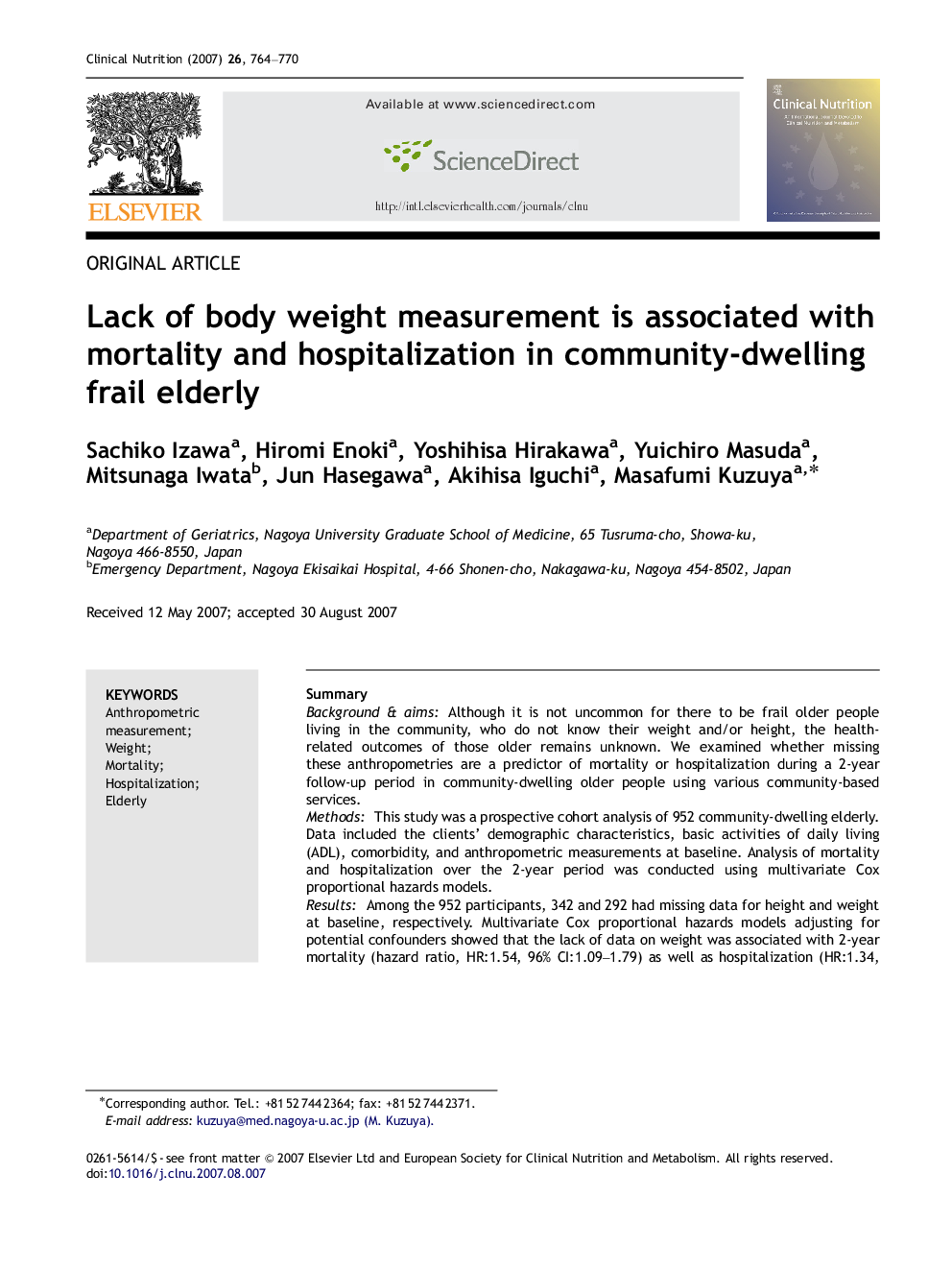| Article ID | Journal | Published Year | Pages | File Type |
|---|---|---|---|---|
| 2688581 | Clinical Nutrition | 2007 | 7 Pages |
SummaryBackground & aimsAlthough it is not uncommon for there to be frail older people living in the community, who do not know their weight and/or height, the health-related outcomes of those older remains unknown. We examined whether missing these anthropometries are a predictor of mortality or hospitalization during a 2-year follow-up period in community-dwelling older people using various community-based services.MethodsThis study was a prospective cohort analysis of 952 community-dwelling elderly. Data included the clients’ demographic characteristics, basic activities of daily living (ADL), comorbidity, and anthropometric measurements at baseline. Analysis of mortality and hospitalization over the 2-year period was conducted using multivariate Cox proportional hazards models.ResultsAmong the 952 participants, 342 and 292 had missing data for height and weight at baseline, respectively. Multivariate Cox proportional hazards models adjusting for potential confounders showed that the lack of data on weight was associated with 2-year mortality (hazard ratio, HR:1.54, 96% CI:1.09–1.79) as well as hospitalization (HR:1.34, 95% CI:1.01–1.79) during the 2-year follow-up, although the lack of height measurement was not associated with these adverse outcomes.ConclusionsOlder people living in the community with unavailable weight data appear to be more likely to have a high risk of mortality and hospitalization.
